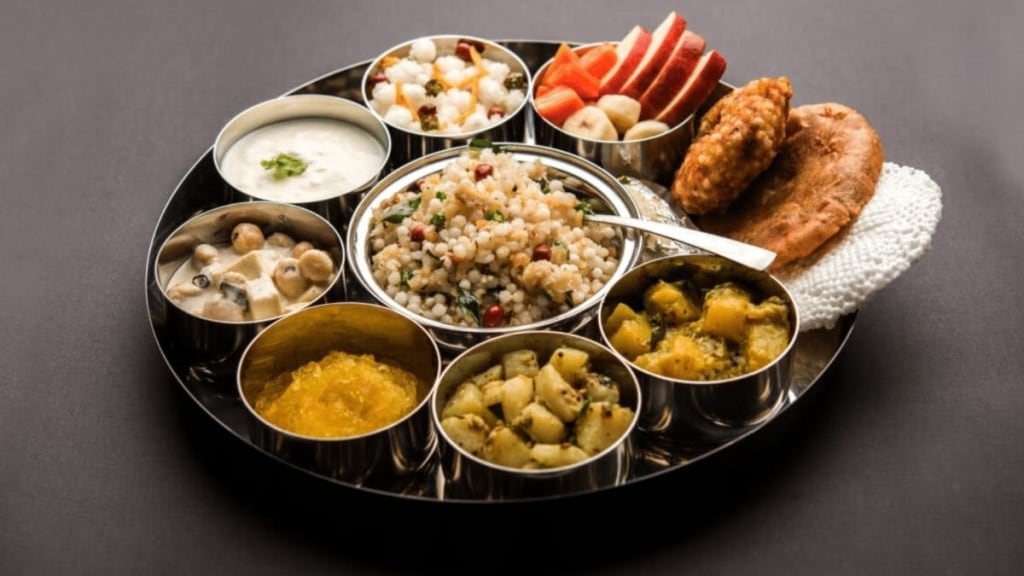The festival of Krishna Janmashtami is just around the corner, and this year it will be celebrated on August 16. Across the country, people are decorating their homes, while temples are being adorned with flowers, lights, devotional songs, and preparations are in full swing for the midnight celebrations of Lord Krishna’s birth. Apart from festivities, fasting is a big part of the day for many. Some observe a ‘nirjal vrat’ (without water), while others eat only special vrat-friendly foods and drinks.
But for people with diabetes, pre-diabetes, or unstable blood sugar levels, fasting can be risky. The long gap without food, and then traditional high-sugar prasad like makhan mishri, peda, or sweetened milk, can cause sudden highs and lows in glucose levels. This can lead to dizziness, fatigue, or even serious complications. So what should you do to keep your blood sugar levels in check while fasting during Janmashtami? We got in touch with doctors who share tips to keep your blood sugar stable while fasting.
Plan your pre-fast meal wisely
Dr. Ajay Kumar Gupta, Senior Director and Head of Internal Medicine at Max Super Speciality Hospital, Vaishali, says the first step is to focus on your pre-fast meal. “It should be balanced, with complex carbohydrates like oats, brown rice, whole-grain chapati, or pasta for slow energy release; lean protein such as paneer, curd, or lentils; and healthy fats like nuts or seeds,” he said.
Don’t forget to keep yourself hydrated
Water is your best friend when fasting. Dr. Gupta shares that drinking enough fluids before and during the fast (if your type of vrat allows it). “Opt for coconut water, lemon water without sugar, or plain buttermilk to maintain electrolyte balance,” he says. If you’re on a nirjal fast, hydrate well the night before.
Go slow on sweets
Janmashtami prasads are delicious but often loaded with sugar. While it’s okay to enjoy makhan mishri or peda in small portions, Dr. Gupta suggests having them with a source of protein, like nuts or paneer to reduce the sugar spike.
When breaking your fast, avoid heavy, greasy meals right away. Instead, start light, a few pieces of fruit, a handful of nuts, or some paneer, and then move on to your main meal after 30–45 minutes.
Choose low-GI fasting foods
If you’re allowed to eat during your fast, go for low-glycemic index (GI) foods like samak rice, sweet potato, or kuttu roti. This keeps you safe from rapid sugar spikes and provides steady energy.
Keep a close watch on your sugar levels throughout the day
If you have diabetes, keep a close watch on your sugar levels during the day. “Break your fast immediately if you experience symptoms like sweating, confusion, palpitations, or extreme weakness,” Dr. Gupta warns.
Expert tips for balanced fasting
Dr. Saptarshi Bhattacharya, Senior Consultant in Endocrinology at Indraprastha Apollo Hospitals, says the key to safe fasting whether it’s for Janmashtami or intermittent fasting is planning and portion control.
Eat a balanced pre-fast meal
Include all three macronutrients in your meals to keep your energy steady. For complex carbs, choose options like whole wheat roti, brown rice, bajra, jowar, ragi, or oats. Add protein from sources such as dal, chana, rajma, paneer, eggs, or fish. Have healthy fats like nuts, seeds, ghee, or coconut. Dr. Bhattacharya suggests a balanced plate could look like having two rotis with dal, sabzi, curd, and a handful of soaked almonds.
Avoid refined and sugary foods before fasting
Foods like white bread, maida parathas, fried snacks, and sweets cause quick sugar spikes and crashes. Hence, Dr Bhattacharya advises to stick to fibre-rich, slow-digesting options.
Break the fast gradually
Start with something light like 1–2 dates, guava, papaya, or buttermilk. Wait 15–20 minutes before having your main meal.
Fill your plate with vegetables
Vegetables like lauki, tinda, spinach, bhindi, and carrots help slow sugar absorption. Add them to curries, soups, or stir-fries.
Avoid overeating
Heavy meals after fasting can cause a sharp blood sugar rise. Eat slowly, chew well, and keep portions moderate.
As per the American Diabetes Association, fasting can be safe for many people with stable blood sugar if they prepare well and adjust their diet. However, those with type 1 diabetes, uncontrolled type 2 diabetes, or other serious health conditions should consult a doctor before fasting.
